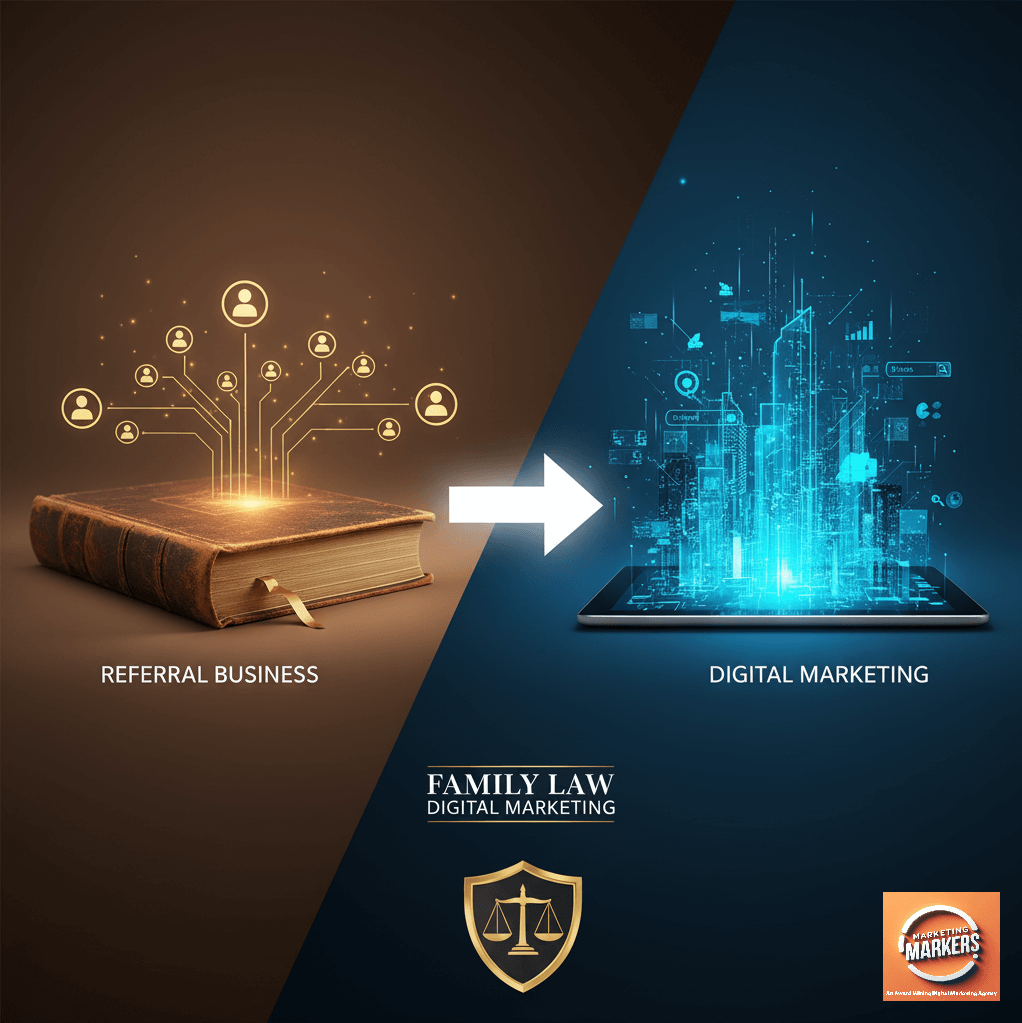For decades, referrals have been the backbone of family law practices. A satisfied client, a trusted
colleague—this network has been a reliable source of new business. But in today’s digital world, is that
enough? While referral business is valuable, relying on it alone is like trying to fill a bucket with a single,
slow-dripping faucet. Meanwhile, a powerful, gushing pipeline of new clients is waiting to be tapped
through strategic digital marketing for family law.
The Digital Era’s New Reality for Law Firms
Think about how people search for a family law attorney today. They’re not flipping through the yellow
pages. They’re using Google. Over 60% of people seeking legal services start their journey online. This
means even if a potential client gets a referral, their next step is to research you online. What they find—
or don’t find—will shape their decision.
A strong digital presence builds credibility and trust before a single phone call is made. It demonstrates
your expertise, showcases your professionalism, and, most importantly, provides social proof. A modern,
mobile-friendly website with clear calls to action, professional bios, and client testimonials acts as your
digital front door. Without it, your family law practice is practically invisible to a vast audience of people
actively seeking your services.
Why Digital Marketing is More than Just a “Nice-to-Have” for Family Law
Digital marketing for family law attorneys is not about flashy ads; it’s about targeted outreach and
authority building. The marketing markers of success in this era are clear:
- Search Engine Optimization (SEO): SEO for law firms ensures that when someone searches for
“divorce lawyer near me” or “child custody attorney [Your City],” your firm appears at the top of
the results. This is about capturing high-intent leads who are ready to hire.
- Paid Advertising (PPC/Google Ads): This provides an immediate and measurable way to gain
visibility. Unlike organic SEO, which takes time, PPC allows you to instantly appear at the top of
search results and drive targeted traffic to your site. You pay only when someone clicks on your
ad, giving you control over your digital marketing budget and clear ROI tracking.
- Content Marketing: By creating informative blog posts, articles, and videos, you position yourself
as a trusted expert. A potential client facing a difficult situation like a legal separation isn’t just
looking for an attorney—they’re looking for answers. Providing valuable content on your website
shows empathy and knowledge, building a connection before they’ve even become a lead.
- Online Reputation Management: Client reviews are the new referral. A potential client will read
your Google Business Profile and other online reviews before making a decision. Proactively
managing your online reputation by requesting and responding to reviews turns past clients into
a scalable referral engine.
The Bottom Line: Referrals vs. Digital
Referral business is unpredictable. It depends on the size and activity of your existing network. Digital
marketing, on the other hand, is a proactive, data-driven system. It allows you to track exactly where
your leads come from, what marketing efforts are working, and how to optimize your spending for the
best results.
While a referral can be an incredibly strong lead, a comprehensive digital marketing strategy ensures a
consistent, scalable, and predictable flow of new business. Don’t wait for your next referral; go out and
find your next client. The legal landscape has evolved, and the most successful firms are the ones that
are found, not just recommended.
Ready to stop waiting and start growing your family law practice?
Contact our team of Marketing Markers for a complimentary digital marketing strategy session.

